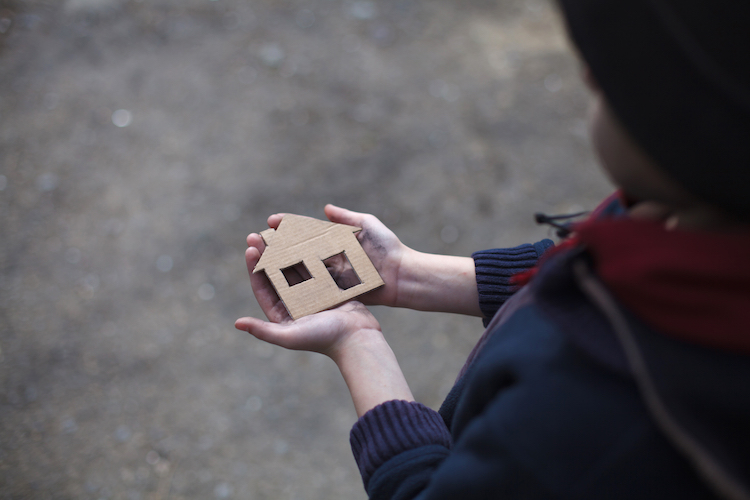By Donna Gallup
Before the financial crisis of 2008, most Americans contemplated the plight of the homeless just long enough to reinforce widely held notions of who the homeless were and what set them on their tragic journeys. By 2010, however, average hardworking citizens were confronting record-breaking foreclosures and a new reality accompanied by the new face of homelessness, which for many had become their own. No longer confined to the stereotypes of the mentally ill, substance abusers or alcoholics, homelessness had reached historic numbers. In a report issued that year by the U.S. Conference of Mayors, one in 200 Americans experienced homelessness, with a 9 percent increase in the number of families seeking emergency shelter on any given night.
Shedding light and hope on a troubling predicament.
Today, the state of the U.S. economy can be viewed like two sides of the same coin: on one side, economic statistics from 2015 paint an encouraging portrait, with rising retail sales, increased industrial production, falling gas prices and all-time low mortgage interest rates; on the other, housing stability remains a distant proposition for a large segment of the American public who simply cannot afford to buy or rent a home. California, in particular, has become a bastion of homelessness in the last two decades despite achievements in most every industry, including technology, medicine and ecology. According to the 2014 Annual Homeless Assessment Report to Congress, the state consistently ranks #1 in homelessness and accounts for some 20 percent of the total U.S. homeless population. Los Angeles alone has the second highest number of homeless people in the U.S.—some 53,000—and ranks among the top ten in the world.
As a growing population and deepening division between classes continues to plunge California deeper into widespread homelessness and high costs of living, there is an acute need for affordable rental housing and related services, especially in the southern half of the state where rents are high and vacancy rates are low. Amidst this ongoing struggle, American Family Housing (AFH), a Southern California nonprofit organization dedicated to permanently ending the cycle of homelessness, is working tirelessly to shed light and hope on a troubling predicament, while providing shelter and related services annually to more than 1,300 men, women and children across Los Angeles, Orange and San Bernardino counties. Offering unconditional support to the homeless with a “harm reduction and housing first” approach, AFH aims to end homelessness in Southern California by giving everyone a fair chance for housing stability and a better way of life—whether they are clean, sober or still facing the challenges of addiction, abuse, physical disabilities or mental illness.
I’m Just Like You. You’re Just Like Me.
With a bold new vision to assist more communities and municipalities with innovative housing alternatives, particularly for the chronically ill and veterans of war, American Family Housing is also embarking on a first-of-its-kind multifamily housing project in Midway City, called Potter’s Lane—an energy-efficient and sustainable housing site comprised of eco-friendly GrowthPoint Structures (beautifully modified-steel structures), unique native landscaping and outdoor spaces suited to meet surrounding environments, as well as the requirements and needs of the residents that will live there.
Numerous studies continue to show that it costs cities, counties and states less taxpayer money to provide the homeless with a safe place to live than it does to leave them on the streets, and places like Utah and major cities like Phoenix, New Orleans and Austin, Texas. are well on their way to eradicating homelessness. If they can do it, California most certainly can, too.
For more information on ways you can support American Family Housing through donation or volunteer opportunities, visit www.afhusa.org or call (714) 897-3221. Check out the AFH Facebook page at www.facebook.com/afhusa and Twitter at www.twitter.com/afhusa.
ABOUT THE AUTHOR
Donna Gallup, M.S.W., L.S.W., is president & CEO of American Family Housing and a lifelong human services advocate who has tenaciously worked to benefit disadvantaged individuals and communities. With decades of experience in housing and community development, fundraising and social services, Gallup possesses a unique and comprehensive understanding of the issues affecting the homeless population in California and across the USA. A New Jersey native, Gallup holds a master’s degree in social work from New York University and has worked extensively with special needs populations, including the homeless, adults with mental illness, survivors of domestic violence and sexual assault, vulnerable families, and persons living with the challenges of addiction. Within the last decade alone, she has helped secure over $21 million for property acquisition and rehabilitation, operations, and services to develop supportive housing for the homeless and mentally ill. Prior to joining AFH, Gallup served as CEO of the LAMP Community located on Skid Row in Los Angeles and in December 2013, the ACLU SoCal honored her at its Bill of Rights Dinner with the Human Rights Advocate award.
ABOUT AMERICAN FAMILY HOUSING
American Family Housing (AFH) is a nonprofit organization that provides a continuum of housing and a broad spectrum of related services to vulnerable populations facing barriers to achieving housing stability, including war veterans and adults with disabilities and mental illness. Operating 63 housing sites, with 283 units that serve more than 1,300 unduplicated adults and children each year in Los Angeles, Orange and San Bernardino counties, AFH is committed to permanently ending the cycle of homelessness—helping low-income families and adults achieve a self-sustaining way of life and become engaged and contributing members of their communities. Continuously expanding over three decades, AFH provides the following programs and services—based on individual requirements—in order to address and resolve obstacles preventing at-risk adults and families from securing their basic human needs, which above all include a place to call home. For more information, visit www.afhusa.org.
Feature image homeless boy via Shutterstock



